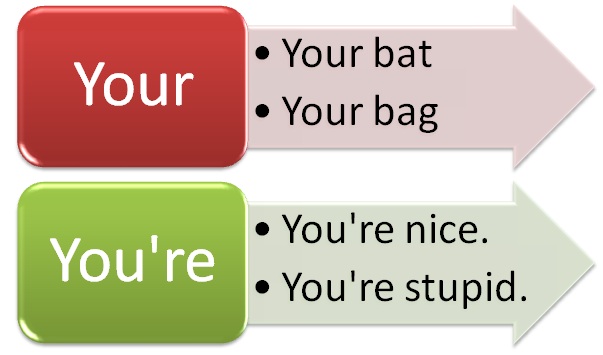Your vs You’re
Although “your” and “you’re” may sound similar, they have distinct meanings, and using them interchangeably is incorrect. “Your” is a possessive adjective that indicates possession, while “you’re” is a contraction of the words “you” and “are.”
Key Takeaways
- Your is a possessive adjective, indicating something belongs to the person you are speaking to.
- You’re is a contraction of the words “you” and “are.”
- Incorrect usage of “your” and “you’re” can change the meaning of a sentence significantly.
What does Your mean?
As mentioned earlier, “your” is the possessive form of the pronoun “you,” indicating that something belongs to the person being spoken to. For example, “Wash your dirty clothes before you go out again.” In this sentence, the dirty clothes belong to the person being spoken to, so “your” is used to indicate ownership. Using “you’re” instead of “your” in the sentence, “It’s your bicycle” would make it incorrect and meaningless.
What does You’re mean?
“You’re” is the contracted form of “you” and “are.” It should be followed by a word or phrase that gives meaning to the pronoun “you.” For example, “You’re so beautiful today.” In this sentence, “you” refers to the person being spoken to, and “are” indicates their beauty on that particular day. Using “your” instead of “you’re” would make the sentence nonsensical. Note that using “you’re” incorrectly can result in sentences lacking compactness and proper construction.
What is the difference between Your and You’re?
- Your is a possessive adjective, while you’re is a contraction of “you” and “are.”
- Your denotes possession, while you’re does not.
Misusing “your” and “you’re” can significantly change the meaning of sentences. For example, saying “your right” instead of “you’re right” would be incorrect. Similarly, using “you’re home” instead of “your home” would be inappropriate. As such, it is crucial to use “your” and “you’re” correctly and understand that “you’re” is a contraction of “you” and “are.”
